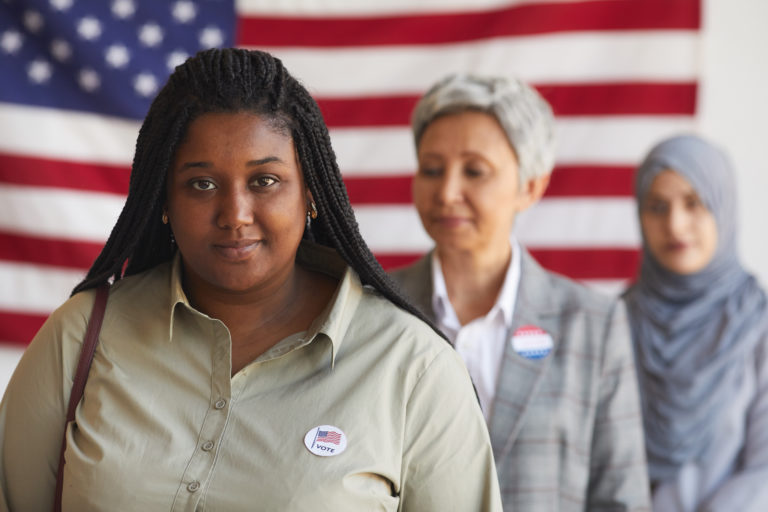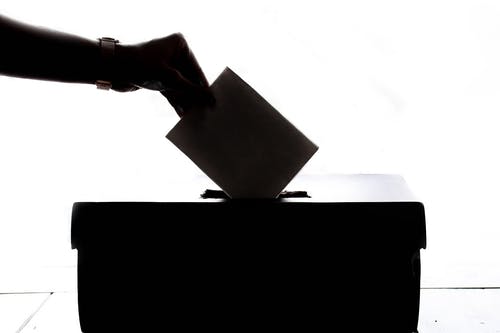According to our research “Stepping Up and Standing Out,” women are inspired by other…
Martin Luther King, Jr. Day: Remembering Three Women Who Impacted His Life

Every year on the third Monday of January, the country celebrates Martin Luther King, Jr. Day. The bill for a federal holiday honoring the late civil rights icon was first proposed to Congress in 1979 by U.S. Representative John Conyers of Michigan and U.S. Senator Edward Brooke of Massachusetts. In 1983, President Ronald Reagan signed the bill, making Martin Luther King, Jr. Day an official holiday, with King’s wife Coretta Scott King, and father Martin Luther King, Senior present. Although the legislation was passed at the federal level, all states did not recognize MLK Day as a paid holiday until 2000 when South Carolina became the last state to recognize the holiday.
People commemorate Martin Luther King, Jr. Day with acts of service across the country while also honoring his prodigious and impactful leadership during the Civil Rights Movement. King is most well-known for his work to organize the 1963 March on Washington for Jobs and Freedom, where he delivered his iconic “I Have a Dream” speech on the steps of the Lincoln Memorial. Dr. King also served as President of the Southern Christian Leadership Conference (SCLC), an African-American civil rights organization based in Atlanta, Georgia from 1957 until his assassination in 1968.
While King received a well-deserved spotlight for his work for equal rights, over the years many have said that women were the backbone of the Civil Rights Movement. This year, while reflecting on the work Martin Luther King, Jr. did for the country, let’s also remember three of the many women in his life who heavily impacted his work.
Alberta Williams King, Martin Luther King, Jr.’s mother, helped shaped him into the leader that so many knew and still look up to.
Alberta received her education from Morris Brown College in Georgia, where she obtained her Bachelor’s Degree. When Martin Luther King, Jr. was growing up, she was the First Lady of Atlanta’s Ebenezer Baptist Church, where she led the choir, and played the church organ. In addition, Alberta remained heavily involved in her community, where she served as a member of the NAACP, YWCA, and the Women’s International League for Peace and Freedom.
King wrote fondly of his mother’s impact on his life, saying, “Unlike my father, she is soft-spoken and easy-going. In spite of her relatively comfortable circumstances, my mother never complacently adjusted herself to the system of segregation. She instilled a sense of self-respect in all of her children from the very beginning.”
Martin Luther King, Jr. and his wife Coretta Scott King initially met in 1952 in Boston while he was a student at Boston University and she was attending the New England Conservatory of Music.
Prior to her move to New England, Coretta attended Antioch College in Ohio for her undergrad years. While at Antioch, Coretta joined the Civil Rights Movement, becoming a member of the local chapter of the NAACP and the college’s Race Relations and Civil Liberties Committees.
Upon seeing her husband’s growing prominence in the Civil Rights Movement, Coretta decided to forgo her dreams of becoming a singer, and, as she would later say, “marry the movement.”
In his autobiography, Dr. King said about Coretta: “My devoted wife has been a constant source of consolation to me through all the difficulties. In the midst of the most tragic experiences, she never became panicky or over-emotional. I have come to see the real meaning of that rather trite statement: a wife can either make or break a husband. My wife was always stronger than I was through the struggle.”
Famous gospel singer Mahalia Jackson was a trusted friend and source of strength for Martin Luther King, Jr.
Jackson and King originally met in 1956 at the launch of the famous bus boycott in Montgomery, Alabama. Former director of the Southern Christian Leadership Conference, Reverend Ralph Abernathy, asked Jackson to come to the bus boycott to help garner support for the movement. They soon became quick friends.
King would frequently call Mahalia Jackson when he was feeling down to have her sing to him. During his speech at the March on Washington, Jackson cried out, “Tell them about the dream, Martin! Tell them about the dream!” And once King heard that, he went off script from his originally planned five-minute address and began to ad lib his now prolific “I Have a Dream” speech. Many historians suggest that without Mahalia Jackson’s urging, King may have never delivered his iconic words.







